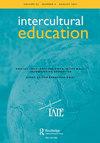爱沙尼亚学前和小学教师的跨文化能力由新移民学生的经历塑造
IF 0.8
Q3 EDUCATION & EDUCATIONAL RESEARCH
引用次数: 1
摘要
爱沙尼亚的文化多样性一直在通过移民扩大,因此需要教新来的移民学生(NAMSs)已成为爱沙尼亚教育系统中的一个重要问题。本研究考察了与教师的态度、知识和技能有关的跨领域的跨文化能力。共有来自15所幼儿园的167名教师和来自26所基础学校的227名小学教师参与了研究。经验丰富的教师自我评价他们对跨文化能力的态度明显低于经验不足的教师。然而,没有nams教学经验的教师自我评价他们的技能和知识低于有nams教学经验的教师。基于学校层面的教师跨文化能力比较显示,幼儿教师对自己技能的自我评价显著高于小学教师。研究结果突出了nams教学在教师专业学习体验中的价值。此外,有必要通过将包容性实践更多地与文化多样性联系起来,扩大教师职前和在职教育中跨文化能力的概念。本文章由计算机程序翻译,如有差异,请以英文原文为准。
Estonian Preschool and Primary Teachers’ Intercultural Competence as Shaped by Experiences with Newly Arrived Migrant Students
ABSTRACT Cultural diversity in Estonia has been expanding through migration and hence the need to teach newly arrived migrant students (NAMSs) has become an important issue in the Estonian education system. This study examined intercultural competence across domains relating to the attitudes, knowledge and skills of teachers. A total of 167 teachers from 15 preschools and 227 primary teachers from 26 basic schools participated in the study. Experienced teachers self-evaluated their attitudes towards intercultural competence as being significantly lower than less experienced teachers. However, teachers without experience in NAMSs teaching self-evaluated their skills and knowledge as being lower than teachers with NAMS-experience. A comparison of teachers’ intercultural competence, based on school level, indicated that preschool teachers self-evaluated their skills as being significantly higher than primary teachers. The results highlight the value of teaching NAMSs in teachers’ professional learning experience. Also, there is a need to broaden the concept of intercultural competence in teachers’ pre- and in-service education by connecting inclusive practices more with cultural diversity.
求助全文
通过发布文献求助,成功后即可免费获取论文全文。
去求助
来源期刊

Intercultural Education
EDUCATION & EDUCATIONAL RESEARCH-
CiteScore
2.30
自引率
8.30%
发文量
36
期刊介绍:
Intercultural Education is a global forum for the analysis of issues dealing with education in plural societies. It provides educational professionals with the knowledge and information that can assist them in contributing to the critical analysis and the implementation of intercultural education. Topics covered include: terminological issues, education and multicultural society today, intercultural communication, human rights and anti-racist education, pluralism and diversity in a democratic frame work, pluralism in post-communist and in post-colonial countries, migration and indigenous minority issues, refugee issues, language policy issues, curriculum and classroom organisation, and school development.
 求助内容:
求助内容: 应助结果提醒方式:
应助结果提醒方式:


